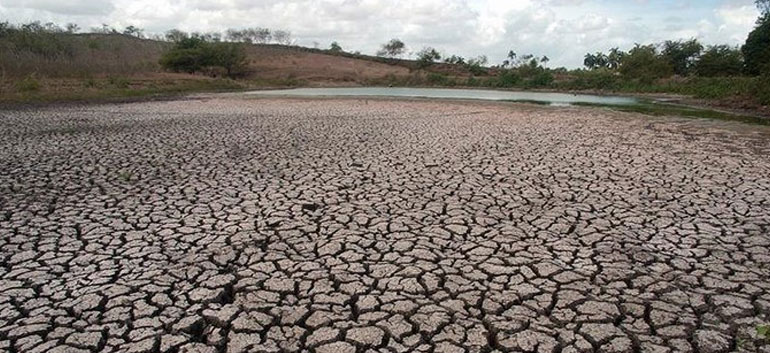Colombia’s state meteorological agency issued an alert Tuesday warning of the possibility of another protracted drought in central Colombia.
Still recovering from a devastating three-month dry spell that wiped out crops, livestock, and wildlife throughout the region, the central-eastern state of Casanare should take precautionary measures to prepare for the likelihood of another drought in the coming weeks, said authorities.
MORE: 7 states on ‘red alert’ as Colombia drought crisis expands
The Institute of Hydrology, Meteorology and Environmental Studies of Colombia (IDEAM), responsible for “vigilance of the national climatic system,” issued an early warning Tuesday about the possible effects of the “El Niño” weather phenomenon on areas still reeling from water shortages and forest fires brought on by the last drought, which lasted from December of last year until late March, reported El Tiempo
MORE: Colombia will experience El Niño well into 2015: govt agency
The chances of El Niño settling in over Colombia are greater than 70%, reported IDEAM at a conference on the phenomenon in the northeastern city of Valledupar, placed of “red alert” during the previous drought.
Director @OFrancoTorres y Subdirectora María Martínez @IDEAMColombia exponen fenómeno de ‘El Niño’ @UniPopularCesar pic.twitter.com/M6BAkItpEx
— IDEAM Colombia (@IDEAMColombia) June 10, 2014
The El Niño weather phenomenon not only raises temperatures across the globe, but primarily is characterized by the warming of the ocean around the pacific coast of South America. This weather condition — the opposite of “La Niña,” which is characterized by cooling – could lead to fluctuations in seasonal droughts, floods, crop yields, and other natural cycles.
MORE: Meteorologists warn of ‘El Niño’ weather phenomenon in 2014
The phenomenon causes an increase in temperature, generating lack of rain and long periods of dry weather, which in this case, would start in August and extend for a total of eight months, whereas usually a normal summer in the region lasts for about four months.
Authorities of Casanare state have already began to evaluate possible actions to mitigate the impacts on flora, fauna and water levels in the surrounding area, according to the alert.
State Secretary of Agriculture, Livestock, and the Environment Alexis Yesid Duarte, said that special emphasis will be placed on the care and preservation of water.
The National Agency of Environmental Licenses (ANLA) was asked to review the uptake of water by the regional oil industry, widely accused of contributing to the previous crisis-level water shortages, and to possibly suspend production activity because of the high related demands on water resources.
Authorities believe the next drought could surpass the previous one, the effects of which are still being felt throughout the east and northeast of the country, where natural flora and fauna have been severely damaged.
MORE: Drought in northern Colombia at crisis levels
The states of La Guajira, Magdalena, Bolivar and Atlantico in the north, and Meta, Arauca and Meta in the east, all experienced or were at immediate risk of acute water shortages and forest fires during the previous dry spell.
Smaller rivers throughout the risk zone were at “critical” levels, including those that feed aqueducts to major urban centers throughout the region.
Sources
- Alarma por posible nueva sequía en Casanare (El Tiempo)



